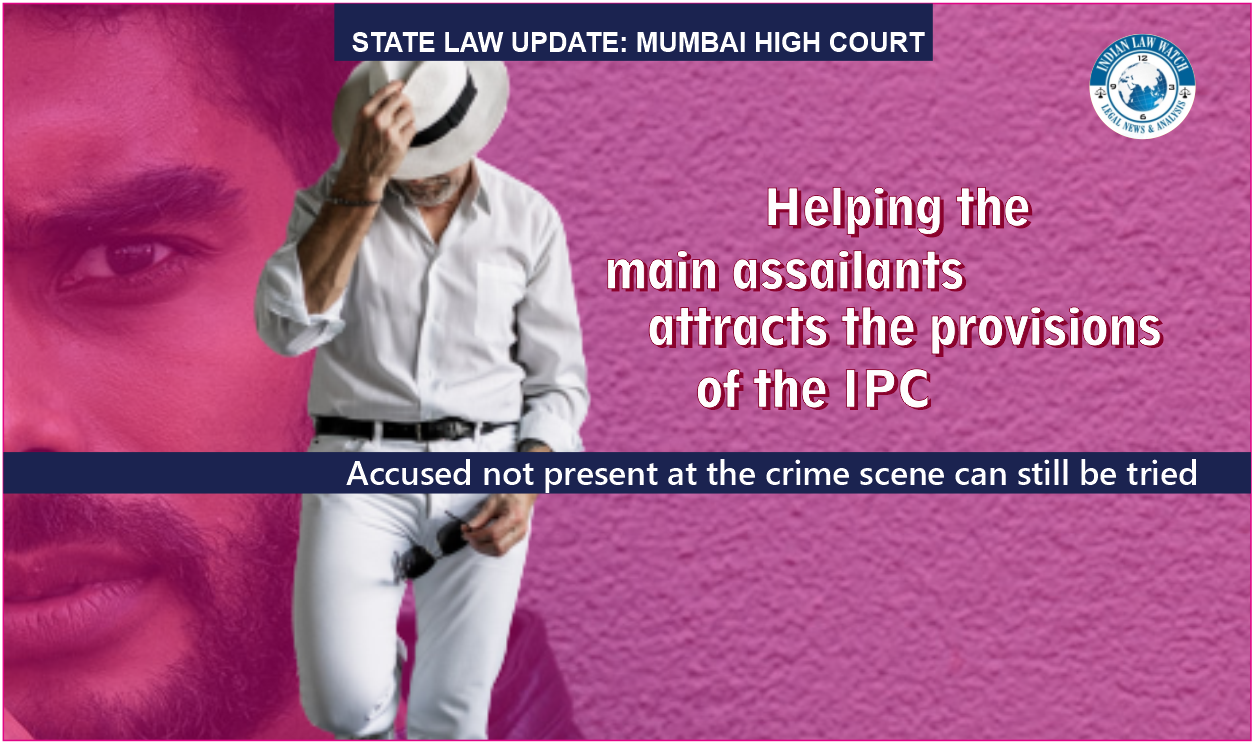

In Rajendra Bhau Patole v. State of Maharashtra & Anr., the Bombay High Court held that the accused need not be present at the crime scene to be tried as a part of the chain of circumstances.

Factual Background
An FIR was filed by Sunil Muralidhar Sathe against the petitioner under sections 307, 324, 323, 509, 504, 506(2), 143, 144, 147, 148, 149 of the Indian Penal Code, 1860 and sections 4, 25 of the Arms Act, 1959 along with sections 37(1) read with section 135 of the Bombay Police Act, 1951 at Mankhurd Police Station.
Subsequently, the petitioner filed an application for grant of protection from arrest in connection with the complaint. Earlier, he got an order of interim protection but failed to secure an order of confirmation because the Additional Commissioner of Police, Mumbai granted his approval under section 23 of the Maharashtra Control of Organized Crime Act, 1999.
The petitioner challenged the constitutionality of section 21(3) of the Act but after the Court raised serious doubt over his prayer, he amended his prayer to seek quashing of both FIR and approval of the Additional Commissioner of Police, Mumbai.
Contentions of the Parties
The petitioner contended that he is not referred as an ‘accused’ in the FIR and that the approval under the Maharashtra Control of Organized Crime Act, 1999 does not disclose the commission of an offence under it. The petitioner only gave shelter to the main assailants in his house at Phaltan, District Satara. However, the learned APP placed reliance on Govind Sakharam Ubhe v. State of Maharashtra and Sachin Bansilal Ghaiwal v. State of Maharashtra and contended that the accused was involved in abetting the main assailants.
Policy of the Maharashtra Control of Organized Crime Act, 1999
The Bombay High Court dealt with the policy of the Maharashtra Control of Organized Crime Act, 1999 and observed that:
“This Act is enacted to prevent and control an organized crime. Organized crime is different from regular crime. If for gaining pecuniary benefits, economic/other advantage unlawful activity is continued it is an organized crime. It must be undertaken on behalf of the organized crime syndicate. It means if there is crime syndicate and they are involved in criminal activity and it has became their source of livelihood, it attracts the provisions of stringent MCOC Act.”
When the offence of abetment is committed?
In Govind Sakharam Ubhe v. State of Maharashtra, the act of negotiating the extortion amount, accepting it, and handing it over to the gang leader was considered to be abetment under section 3(4) of the Maharashtra Control of Organized Crime Act, 1999.
In Sachin Bansilal Ghaiwal v. State of Maharashtra, the appellant was present at the crime scene and assisted the principal accused with the commission of murder. The Court considered these two factors relied upon by the counsel of the petitioner and observed that no interpretation would lead to the conclusion that the said case held that abetment is committed only when the abettor is present at the crime scene.
Whether presence at the crime spot is necessary to label a person as ‘accused’?
The Bombay High Court observed that it is not necessary that such accused should be present on the spot. The chain of circumstances may be such that a set of accused may be present at the crime scene, another set was involved prior to commission of the offence, or post commission of the offence.

Conclusion
The Court observed that the petitioner by helping the main assailants to run away from the crime scene and provide them shelter has attracted the provisions of the IPC. The action of police in showing the petitioner as a wanted accused does not amount to an abuse of the process of the Court as there is involvement of the petitioner.





